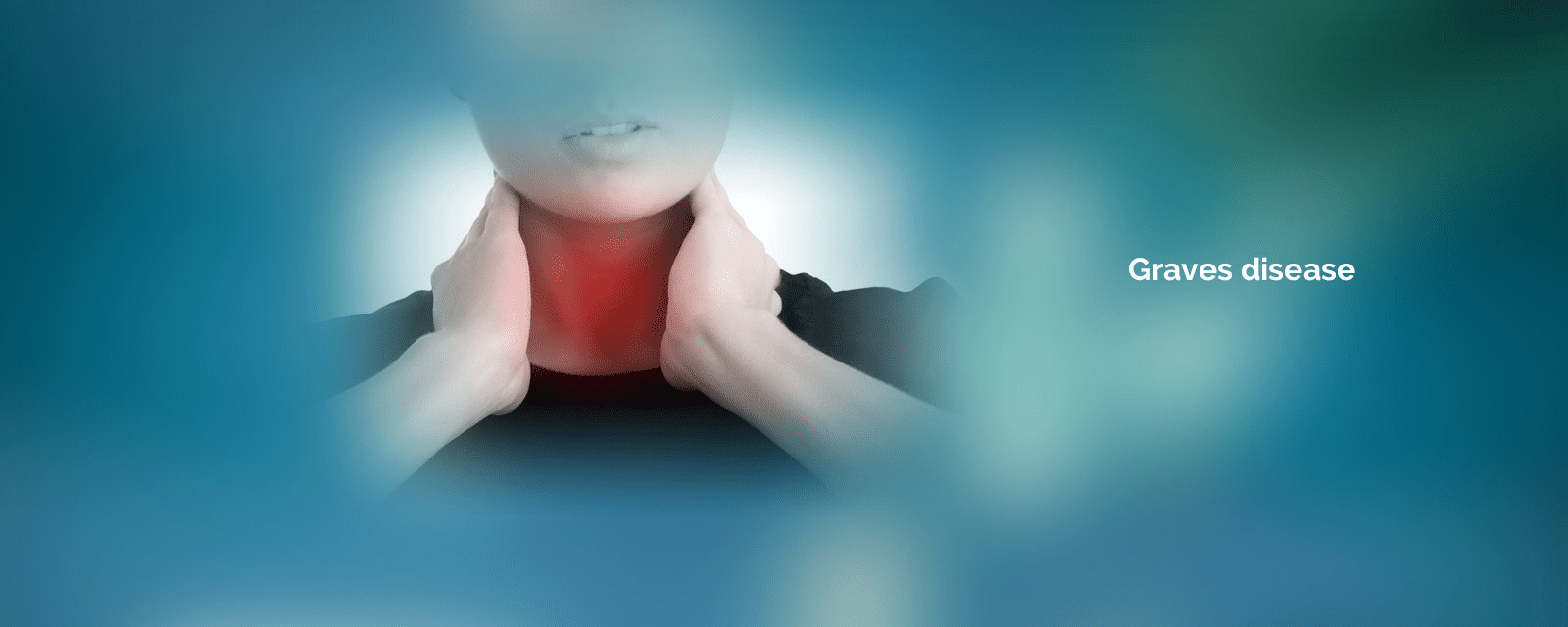Graves’ disease, also called toxic diffuse goitre, is one of the most common problems of the thyroid gland. It is also the leading cause of hyperthyroidism, a condition in which the gland produces excessive hormones. Graves’ disease is more likely to affect women than men, with a ratio of 7:1. Estimated prevalence in India is more than 5 lac people out of the whole population.
Early symptoms of Graves’ disease are often confused with other diseases and therefore difficult to diagnose. These include:
- Weight loss
- Anxiety
- Restlessness
- Trouble Sleeping
- Sweating, Intolerance to heat
- Chest pain, shortness of breath
- Increased stool frequency (with or without diarrhoea)
- Muscle weakness
The main symptoms, as the disease progresses are:
- Goitre
- Prominent bulging eyes, red eyes, vision problems (exophthalmos)
- Thickening of skin (pretibial myxoedema)
See a doctor if you or your loved ones have any of these symptoms. Always trust premier institutions like Paras Hospitals which have specialized departments for the treatment of your condition.
The exact cause is unclear, although, doctors believe this disease to be caused by a combination of genetic and environmental factors. As in all cases of auto-immune disease, the immune system mistakenly turns against the body. The immune system creates antibodies called thyroid stimulating immunoglobulins (TSIs) which cause the thyroid gland to produce more hormones than your body needs. Other risk factors include:
- Family history of the disease is the main risk factor
- Gender, women are more susceptible
- Age, the disease usually develops in people under 40
- Stress, may act as a trigger for onset of this and other auto-immune diseases
- Smoking, increases the risk of contracting the disease
The main aim of the treatment here is to control the overproduction of hormones by the thyroid gland. There are three treatment options available, which your doctor will recommend on the basis of your particular case. They are:
- Anti-thyroid Medication: These are drugs that prevent the thyroid from producing hormones. The problem is, these medications are only effective until you take them. Once you stop, hyperthyroidism may return.
- Radioactive Iodine (RAI): RAI is favoured by doctors as it has been proven to be more effective than anti-thyroid medication. RAI is given as a capsule, or in a water-based solution.
- Surgery: Sometimes, goitre may require surgical removal. Removal of thyroid results in hypothyroidism, but is easily treated.



 Call us at
Call us at